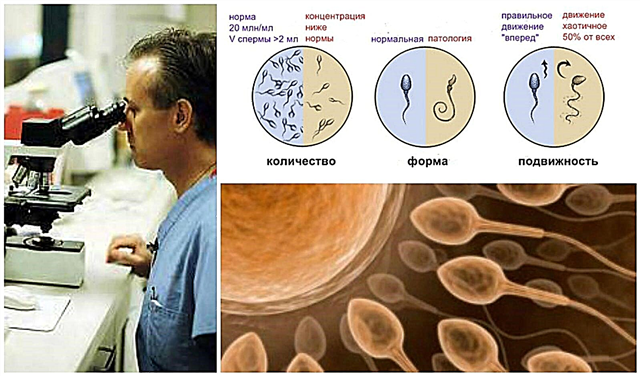
Growth processes in a child's body are not complete without the participation of vitamins, which every baby should receive in sufficient quantities either from food or from supplements. Before choosing a growth-promoting multivitamin for a child, parents should find out what vitamins are needed for growth, what food they contain, and whether the child has indications for taking complex vitamins.

What affects a child's growth
First of all, a genetic factor influences the growth of each baby, however, experts note that each person has a so-called "growth range". It is about 15-20 cm and in order for the child to reach the maximum possible height, some favorable conditions are required.
These include:
- Good nutrition. Without adequate daily intake of protein, vitamins, fats and other nutrients, your child's growth will slow. It is important that nutrition is age appropriate and covers all needs, then there will be no problems with the health of the babies and their growth.
- Sufficient activity. Thanks to the movement, the child will grow more actively, so parents should often walk with preschoolers, and school-age children are advised to enroll in any sports section.
- Correct daily routine. For normal growth, your child needs to get enough sleep and get enough rest throughout the day. Overwork, stress, excessive workload with additional activities - these factors will interfere with growth processes.
Vitamins and other nutrients for growth
The most important substances for the growth of children are:
- Vitamin A. It is called the most important for growth. This compound is involved in bone growth and is also important for the growth of all other tissues in the baby's body. Also, without sufficient intake of vitamin A, the formation of growth hormone can be disrupted. However, an excess of this vitamin can harm the health of children (hypervitaminosis develops), which is important for mom to remember when choosing vitamin supplements.
- Beta carotene. This is a compound from which vitamin A is formed in the child's body (for this reason, it is also called provitamin A). For optimal absorption, carotene must be consumed with fats. Unlike vitamin A, an overdose of carotene is not dangerous for the child's health, but only manifests itself as a change in skin color, which disappears as soon as the amount of this compound in the diet decreases.
- Vitamin D. It is one of the most important vitamins for bone growth as well as tooth formation, as it is involved in the exchange of mineral compounds from which bone tissue is formed. It not only comes from food, but is also formed in human skin when exposed to sunlight. In the first year of life, such a vitamin is extremely important for the formation of the baby's skeleton, therefore, it is more often than others prescribed to take it additionally, especially in the cold season, when there are few sunny days.
- B vitamins. Thiamine, vitamin B2 and pyridoxine are especially important for the growth of vitamins of this group of compounds. Such vitamins improve digestive processes, nerve impulse conduction and metabolic processes, as a result of which growth is activated. Vitamin H is important for hair growth, also called biotin, which is also a B group.
- Vitamin C. Such a compound affects the absorption of other vitamins, therefore, it stimulates the growth of the child indirectly. Without a sufficient amount of it, the absorption and transport of vitamins D and A will be disrupted, which will affect the growth processes. In addition, the assimilation of other substances from which new tissues are built in the child's body, thanks to ascorbic acid, also improves.

- Vitamin E. Such a substance does not directly affect the growth of a child, but its presence in the body of children is important to protect against the destruction of other vitamins valuable for growth - first of all, retinol and vitamin C.
- Vitamin K. Such a compound affects growth indirectly, since it improves blood supply to tissues by thinning the blood and reducing its clotting. Thanks to a sufficient amount of this vitamin, the access of blood with oxygen and nutrients to the bone tissue is improved.
- L-carnitine. This is the name of a vitamin-like compound involved in the metabolism of fats, the growth of bones and muscle tissue. Carnitine can improve appetite and improve overall tone, so it is important for children with slow growth and low weight.
- Calcium. Without this mineral, normal bone formation and muscle contraction are impossible, therefore calcium deficiency affects the growth of the child, as well as the condition of his teeth.
- Zinc. Such a mineral substance stimulates cell regeneration and affects the development of bone and brain tissue, and also participates in carbohydrate metabolism. With a lack of it, the child's growth slows down.
- Iodine. This mineral is an integral part of hormones produced by the thyroid gland. These hormones are responsible for the rate of metabolic processes, so their insufficient amount caused by iodine deficiency also leads to a slowdown in growth.

The intake of the required amount of such substances is especially important in the first year of a child's life and at 4-5 years old, when the preschooler is growing very actively, as well as at 13-14 years old, when it is necessary to maintain the restructuring processes in the adolescent's body.
How to get from food
First of all, the child's needs for vitamins and other compounds important for growth processes must be replenished from food. Even if you give the baby multivitamin complexes, they will only act as an addition to the diet, the careful control of which should be the task of every mother.
Products containing compounds important for the growth of children are presented in the table:

Pharmacy preparations
Introducing an overview of supplements most often appointed children to stimulate growth:
- Aquadetrim. This is a vitamin D3 solution approved for use in children over 4 weeks old.

- Kinder biovital gel. This multivitamin complex contains the most important vitamin compounds for children, lecithin and three minerals. It is allowed to give it to babies of any age.

- Multi-tabs Baby. This multivitamin supplement is prescribed for children in the first year of life. It comes in drops, the composition of which is represented by vitamins D, A and C.

- Pikovit 1+. This complex multivitamin syrup is given to children over a year old. From it, the child receives 9 vitamins valuable for his development.

- Complivit Calcium D3. These chewable tablets contain vitamin D and calcium carbonate. The additive is recommended from the age of 5, and for babies up to 3 years old, this manufacturer produces a separate form in the form of a powder without dyes and preservatives, from which the suspension is prepared.

- Sana-Sol. This multivitamin preparation contains 10 vitamin compounds and comes in a syrup. He is appointed from 1 year.

- Vitamishki. Supplements with this name, assigned to babies over the age of three, are delicious chewy "teddy bears". Both the Multi + multivitamin complex and the Calcium + supplement, in which vitamin D is combined with tricalcium phosphate, positively affects the child's growth.

- Pikovit Unique. These chewable tablets for children over 3 years of age provide the child with 11 vitamin compounds and 8 minerals.

- Alphabet Our baby. Such a drug, produced in the form of a sachet with a powder, is prescribed for children 1.5-3 years old. The beneficial substances in vitamins Alphabet are divided into 3 daily doses, taking into account the absorption of individual components. Our baby complex contains 11 vitamins, beta-carotene and 5 mineral compounds.

- Vitrum Baby. These chewable tablets are prescribed for children 3-5 years old. The complex contains a special formula called "growth trio". It includes calcium, phosphorus and magnesium.

- Nycomed Calcium D3. For children over 3 years of age, these chewable tablets contain calcium carbonate and vitamin D3.

- Supradin Kids gel. This supplement, approved for children over the age of three, contains 8 essential vitamins, lecithin and beta-carotene.
- Multi-tabs Kid Calcium +. These chewable tablets are prescribed for children 2-7 years old. The preparation contains 13 vitamin compounds supplemented with essential minerals.
- Elkar. The supplement is a levocarnitine solution approved from birth.
Contraindications
Vitamins that stimulate growth in childhood should not be given if:
- Intolerance to any component of the supplement.
- Diabetes mellitus (most syrups and chewable multivitamin tablets contain sugar).
- Phenylketonuria (if the selected complex contains aspartame).
- Severe kidney disease.
- Hypervitaminosis A or D.
- Problems with calcium metabolism.

Which is better to choose
It is worth choosing the right vitamins for growth with your pediatrician. He will assess the indications for the appointment of such additives (inadequate nutrition, unfavorable ecological environment, increased loads, a period of active growth) and recommend the optimal drugs. If the crumbs have contraindications, the doctor will help you find an alternative.
Buy vitamins that can enhance the growth of a baby should only be in a pharmacy. So you can be sure that your child will receive a quality product. Look closely to well-known manufacturers and read reviews from moms to avoid health problems.
Be sure to read the instructions for the vitamin supplement and take into account the existing age restrictions. If the baby has not yet turned three years old, select a complex that is approved for use in children under 3 years of age. For a teenager, buy a drug designed for the needs of grown-up children 12-18 years old. Adult complexes should not be given to children.

What to do in case of growth disorders in a child, see the video of the Union of Pediatricians of Russia.
For information on what vitamins to give your child for growth, see the video.



